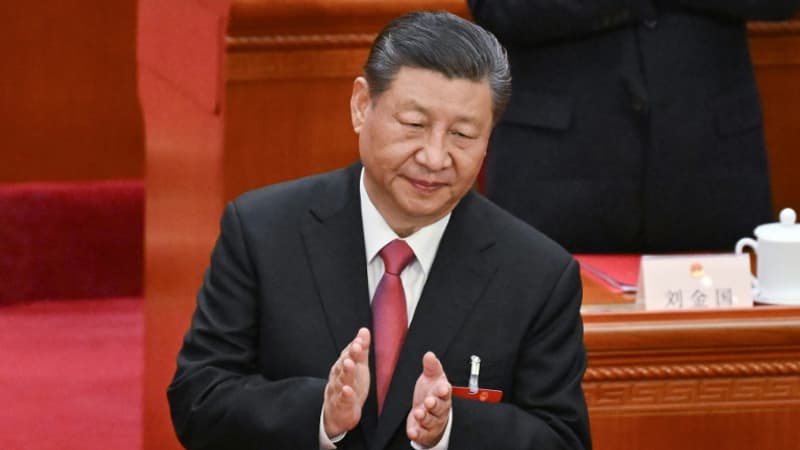It is the most important political moment of the year in China. In the majestic People’s Palace in Tiananmen Square, far from journalists, the entire Communist Party meets to draw up the country’s new road map. The objective: to set priorities for the next five-year plan, a legacy of communism that remains at the heart of the Chinese system. Xi Jinping remains firmly committed to this, convinced that planning is the key to defining long-term objectives and priorities.
Two axes will dominate the work: development, particularly in artificial intelligence, IT and renewable energy, and security, with an emphasis on technological independence and defense.
A struggling economy
This plenary session comes at a time when the economic climate is deteriorating. Beijing faces a series of red signals, starting with the rekindling of trade tensions with the United States. But the economic climate is also gloomy domestically, with foreign investment in decline, domestic consumption at half-mast and the real estate sector in crisis.
Even growth is slowing, to just +4.8% in the third quarter, its lowest level in a year. A notable feature is that the plenary session will not set a numerical growth target. Officially to avoid structural imbalances, unofficially for fear of setting an unattainable objective and exposing the fragility of the current model.
At the center of the discussions, a big question: should we continue to rely on exports and public investment, or start a real shift towards domestic consumption, so that it boosts the entire economy? Boosting consumption would require immense work on Beijing’s part, because household demand never really took off after the Covid crisis.
Xi Jinping, tightrope walker of power
Beyond economic considerations, this plenary session is also an important political moment for Xi Jinping. The Chinese president knows that he is being watched, both within the Party and internationally. It must deal between the declared communist ideology and the reality of an assumed capitalist model. To what extent can you extend the doctrine to justify a “socialist market” model while preserving stability, the basis of the regime’s legitimacy?
This meeting could also serve as a show of force ahead of the 21st Congress in 2027, a decisive step in consolidating his power and his vision for China by 2030.
Source: BFM TV


